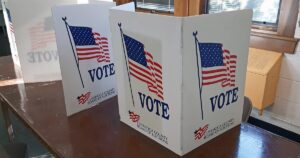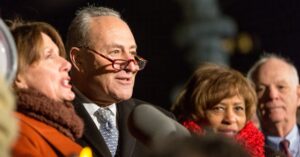Justice Alito Vindicated as Sole Dissenter in Censorship Case
When Robert F. Kennedy Jr.’s censorship case came before the Supreme Court, there was a sole dissenter, Justice Alito.
Recent revelations regarding META and X censorship now appear to justify Alito’s dissent in the case.
Kennedy’s Claim
Kennedy got into hot water over a video he posted making claims about the COVID vaccine.
His video was labeled as misinformation and censored across all outlets.
Kennedy looked at this as a political attack even though, at the time, he was not a candidate for president.
In April of last year, Kennedy stated, "President Biden is the first candidate in history, the first president in history that has used the federal agencies to censor political speech or to censor his opponent.”
DOJ Fights Claim
The big issue at the time was people voicing their opinions about the vaccines, and the Biden administration only wanted so-called “experts” to be talking about this, so any other opinions were being more or less wiped off the internet.
Regarding Kennedy’s video, the DOJ had argued, "Social-media users have a First Amendment right to be free from governmental restrictions on their speech, but they have no First Amendment right to post content on private platforms that the platforms would prefer not to host."
Thomas Healy, a law professor at Seton Hall Law School, backed the bully pulpit of the administration, stating, "The federal government is entitled to use the bully pulpit to advance its policy goals, and most modern administrations have done so. Such communications would rise to the level of censorship only if the encouragement crossed the line into coercion, and that is a factual question."
When the case finally wound up before the Supreme Court, oral arguments did not go well for Kennedy. When the ruling was finally handed down, it was Alito who had the sole dissent, and he was blasted for it by the media.
Vindicated
When the Supreme Court rejected the case, it did so without explanation, but Alito did not agree with the decision, serving as the sole dissenter in the case.
Alito ripped the decision, stating, in part, "Our democratic form of government is undermined if government officials prevent a candidate for high office from communicating with voters, and such efforts are especially dangerous when the officials engaging in such conduct are answerable to a rival candidate.” But again, keep in mind that Kennedy was not a candidate at the time, but his overall point is still relevant.
The real problem at this point was the case had drug on into the presidential campaign, which Alito also mentioned, stating, "But the denial of intervention is likely to prevent Mr. Kennedy from vindicating the rights he claims until the spring of 2024 and perhaps as late as June of that year. And by that time, several months of the presidential campaign will have passed."
With META CEO Mark Zuckerberg recently revealing that he was, in fact, bullied by the administration, stating, "We’ve reached a point where it’s just too many mistakes and too much censorship," it makes Alito look like a genius for having dissented in the case. Yet, he was blasted by both the media and liberals when the decision was first handed down.




